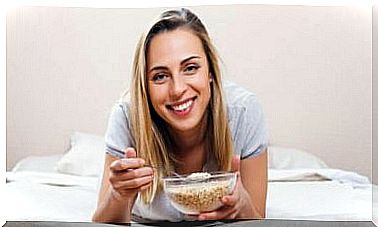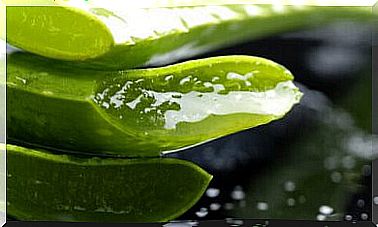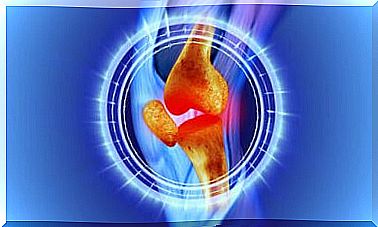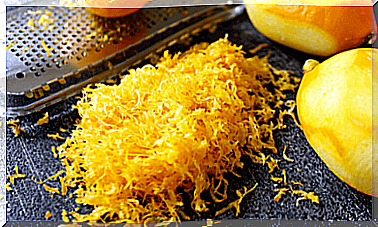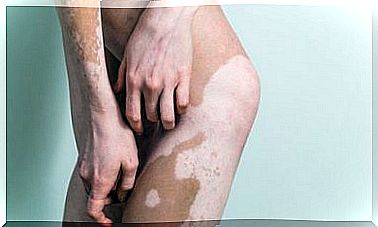6 Ways To Fight Dehydration With Diet
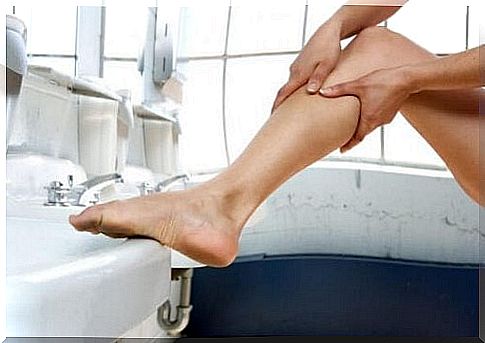
Do you sometimes feel uncomfortably heavy? Is there swelling in your hands or feet? If you have these or other symptoms of dehydration, try the nutrition tips we share in this article, we provide 6 ways to combat dehydration with diet.
People with dehydration may find that their symptoms are relieved when they make certain changes to their diet. Although this ailment is affected by many factors, it can be curbed with diet. Certain foods improve the functioning of the kidneys and lymphatic system, which is a crucial factor in removing fluid that has accumulated in the tissues of the body. These foods also contain important ingredients that regulate electrolyte levels and keep low-grade inflammation under control.
What is fluid edema?
Fluid swelling is an ailment characterized by the accumulation of fluids in the body. It is due to the lack of regulation of the processes responsible for the fluid circulation in the body. This triggers an inflammatory reaction.
Dehydration is not a disease in itself, but it can be a symptom of some disease or disorder, such as kidney disease, high blood pressure, or sudden hormonal changes.
In some cases, dehydration is the result of a sedentary lifestyle and a diet full of fat, salt, and sugar.
Symptoms of edema
Symptoms of swelling vary from person to person, depending on its severity and the underlying cause.
In general, however, edema can be identified by certain features:
- Swelling of the limbs, wrists and abdomen
- Heavy feeling
- Weight gain for no apparent reason
- Exhaustion or general malaise
- Cellulite in the buttocks, thighs and abdomen
- Eye bags
- Low urine production
How to fight dehydration with diet
Although in some cases, edema may require medical attention, in most cases it can be curbed by making some changes in diet.
Next, we’ll go through 6 ways to combat dehydration with diet.
1. Enjoy olive oil in moderation
The good fats in olive oil have an interesting health benefit. Their nutritional content promotes the absorption of certain essential vitamins and reduces low-grade inflammation.
The daily dose should not exceed three tablespoons, as this may have the opposite effect.
2. Drink water and other healthy beverages
Drinking water, tea and cleansing broths stimulates the removal of excess fluid from the body. These drinks improve blood circulation and kidney function, which reduces the amount of fluid in the tissues.
3. Limit salt intake
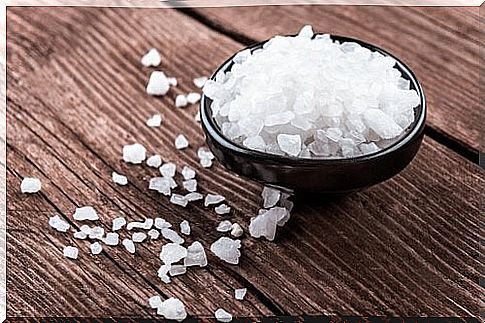
Although salt is a traditional spice in food, it should not be eaten when suffering from swelling. Namely, excessive sodium causes disorders in the body, which can aggravate the problem.
Avoid table salt and other sodium-containing foods, such as:
- sausages
- baked goods
- canned and frozen
- ripened cheeses
- limsoja
- fried foods and ready-made snacks
4. Eat more diuretic foods
The nutritional content of diuretic foods is such that it helps alleviate fluid edema naturally. They typically have a lot of water, potassium and magnesium, all of which improve kidney function.
The best options include:
- artichokes
- pineapple
- cantaloupe melon
- watermelon
- beets
- asparagus
- field cards
- parsley and celery
- ginger
- cinnamon
5. Drink green tea in the mornings

The diuretic and nutritional properties of green tea can help with dehydration. You should drink this drink in the morning or in the morning.
Green tea is an excellent substitute for coffee and other beverages that are of no use in treating dehydration.
6. Eat more fruits and vegetables
Increasing your intake of fresh and raw foods such as fruits and vegetables provides the body with nutrients essential for kidney and lymphatic system functions. Antioxidants, fiber and minerals all help to cope with low-grade inflammation.
You should eat fresh fruits and vegetables at least three times a day. If your limbs feel heavy or drowsy, you can increase the amount to five servings and eat them either as is, in juices or smoothies.
Do you have symptoms of swelling? Try these tips! They are very easy to implement and no strict diet needs to be followed.
